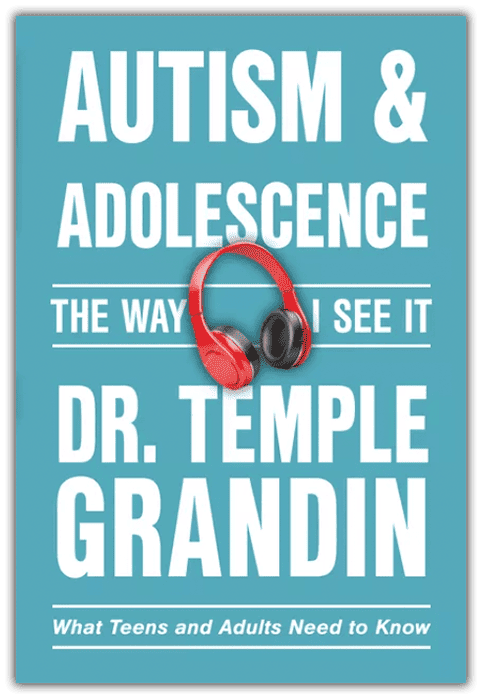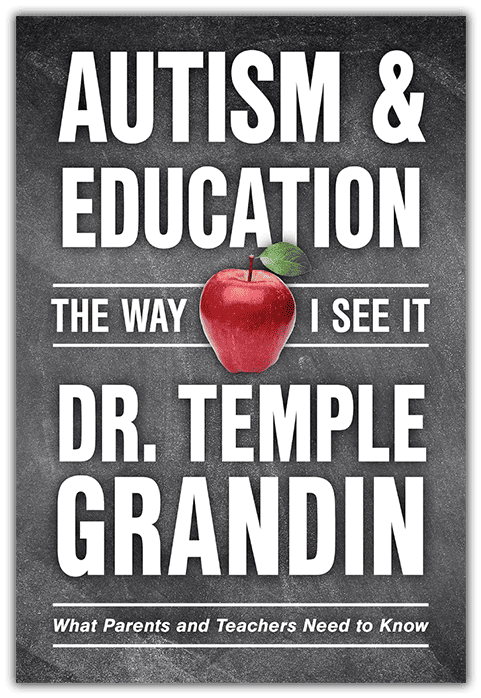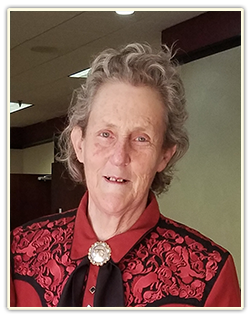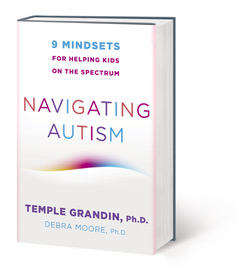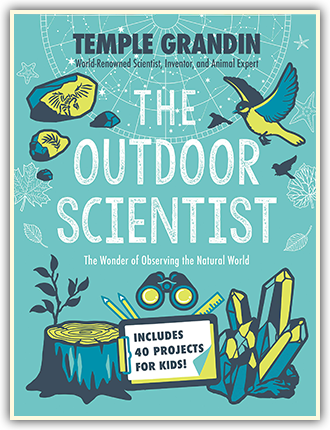
Webinars & Conferences
Upcoming Conferences
May 21 - Ralston, NE
May 28 - Boise, ID
May 30 - Nashville, TN
June 17 - Connecticut
June 28 - Florida
September 19 - Cincinnati, OH
A MUST LISTEN!!
Temple's Latest Books!
Temple Grandin earns Dole Leadership Prize!
NAVIGATING AUTISM
"The Outdoor Scientist"
Kids Must Learn Work Skills
At almost every autism conference, I have either a parent or a teacher say “he is 21, how do I get him to stop playing video games in the basement” or “he is 18 and he is in the bedroom for six hours a day playing games.” Many of these game addicts are not having good outcomes. Too many of them are ending up on social security and continue to play games all day.
In my generation, kids in middle school all had paper routes or other jobs. I remember geeks and nerds I went to school and college with, who would be labeled ASD today. My nerdy ASD classmates all got jobs and some own a business. In this article, I am writing about individuals who are all completely verbal and capable of doing normal school work in most subjects.
Paper Route Substitutes
Learning work skills needs to start in middle school. When I was thirteen, mother arranged a job for me doing hand sewing for a freelance seamstress. When I was fifteen I cleaned eight horse stalls every day and took care of the horses. There is a discipline and a responsibility to having a job. I was proud that I was in charge of the horse barn. Many parents may say – “but there are no paper routes today.” There are lots of ways to find paper route substitutes. Parents and teachers need to set up jobs for middle school and high school kids in the neighborhood. Below are some easy ideas for opportunities for kids to learn work skills. It is never too late to start. The same principles apply to older kids and young adults.
- The job should be outside the child’s home. Kids need to learn independence and responsibility.
- For kids under 16, volunteer jobs or jobs paid in cash work well. As soon as the child turns 16, he should get a job in the regular economy.
- Jobs for younger kids:
- Walking the dogs for neighbors
- Setting up chairs at a church or community center
- Working in a farmers market
- Fixing computers and running virus scans for local people
- Helping an independent business with office work
- Volunteer tour guide at a museum. (Many museums will take 12-year olds)
- Usher at church
- Jobs for 16 and older:
- Working at regular paid jobs such as grocery stores to learn the discipline of a job.
- Apprenticeships in skilled trades. If available, take skilled trade jobs at school.
- Jobs for college students:
- When I was in college, I did career relevant internships. One summer I worked in a research lab and another I worked with severely autistic children. I continued to go to my aunt’s ranch where I took guests on horseback rides and did waiting on tables.
- When I was in college, I did career relevant internships. One summer I worked in a research lab and another I worked with severely autistic children. I continued to go to my aunt’s ranch where I took guests on horseback rides and did waiting on tables.
- Jobs for younger kids:
You have to stretch these kids just outside their comfort zone. Last Christmas, I took my first solo ride on the New York subway. Even I have to be willing to do new things on my own.
About Temple Grandin
Dr. Grandin did not talk until she was three and a half years old. She was fortunate to get early speech therapy. Her teachers also taught her how to wait and take turns when playing board games. She was mainstreamed into a normal kindergarten at age five. Oliver Sacks wrote in the forward of Thinking in Pictures that her first book Emergence: Labeled Autistic was “unprecedented because there had never before been an inside narrative of autism.” Dr. Sacks profiled Dr. Grandin in his best selling book Anthropologist on Mars.
Dr. Grandin became a prominent author and speaker on both autism and animal behavior. Today she is a professor of Animal Science at Colorado State University. She also has a successful career consulting on both livestock handling equipment design and animal welfare. She has been featured on NPR (National Public Radio) and a BBC Special – "The Woman Who Thinks Like a Cow". She has also appeared on National TV shows such as Larry King Live, 20/20, Sixty Minutes, Fox and Friends, and she has a 2010 TED talk. Articles about Dr. Grandin have appeared in Time Magazine, New York Times, Discover Magazine, Forbes and USA Today. HBO made an Emmy Award winning movie about her life and she was inducted into the American Academy of Arts and Sciences in 2016.
When she was young, she was considered weird and teased and bullied in high school. The only place she had friends was activities where there was a shared interest such as horses, electronics, or model rockets. Mr. Carlock, her science teacher, was an important mentor who encouraged her interest in science. When she had a new goal of becoming a scientist, she had a reason for studying. Today half the cattle in the United States are handled in facilities she has designed.
